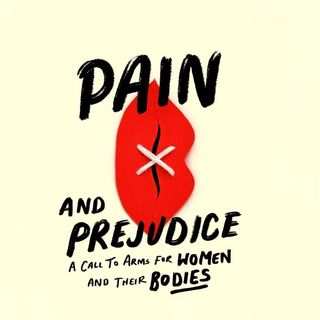
Everything You Need to Know About That Vague but Heavy Feeling of Stress
Turns out, stress is only as damaging to our health as we think it is.

Stress is a sudden work deadline an hour before a dinner reservation with an old friend. It’s standstill traffic in peak hours on Mumbai’s roads. It’s an empty bank account, a sexist boss, a backache that won’t let you sit, an argument with your parents. And if stress feels never-ending, it’s because it is, by definition, inevitable.
What is stress?
Technically speaking, stress is the body’s natural reaction to any change that requires an adjustment. The body reacts to these changes (such as a threat or a challenge) with physical, mental, and emotional responses.
It’s inevitable: everyone experiences stress from time to time as a reaction to life experiences.
What are the different types of stress?
A circumstance that stresses — a stressor — may be a one-time or short-term occurrence, or it can happen repeatedly over a long time, such as a recurring illness. What may be a stressor for one need not stress another out. Some people may cope with stress more effectively and recover from stressful events more quickly than others.
These disclaimers in place, stress is all too common in the fast-paced, constantly changing, highly competitive, and politically volatile climate we currently live in. This kind of stress is called routine stress. It pertains to pressures of school, work, family, finances, and other daily responsibilities. According to one estimate, more than 80% of all Indians report feeling stressed on account of work, health, and financial problems.
Other kinds of stress are responses to trauma — from a sudden negative change, such as the death of a loved one or a divorce, to trauma experienced during a major event such as a serious accident, war, or natural disaster.
Related on The Swaddle:
Stress Is Contagious, but Here’s How We Can Avoid Infecting Each Other
What are the effects of stress on the body?
It depends on the duration of the stress response.
In immediate or short-term situations, stress is not necessarily a bad thing. It’s what helps a person cope with potentially dangerous situations, submit a deliverable before a deadline, or avoid an accident. To understand what stress does to the body, it’s important to look at the evolutionary basis of stress.
For our ancestors, stress was necessary for survival, allowing them to avoid real, physical threats such as giant bears. That’s because stress makes the body think it’s in danger and triggers that ‘fight-or-flight’ survival mode. Once triggered, all the consequent chemical changes prepare the body for physical activity like running or attacking, by releasing hormones that increase heart and breathing rates and ready the muscles to respond. When the stressor is resolved, the body goes back to normal.
But if, for some reason, the body’s stress response doesn’t stop firing or if stress levels stay elevated for longer than needed, it can greatly affect overall health; termed as chronic stress, this kind of stress can manifest as symptoms like irritability, anxiety, depression, headaches, and insomnia.
What is the most important thing to remember about stress?
In 2020, ‘flight-or-fight’ is not always an accurate response to stress; today’s stress is usually caused by something not actually life-threatening at all. But we stress anyway because our brains can’t differentiate between something that’s a real threat and something that’s a perceived threat.
Keeping that in mind, the best way to deal with modern-day stress is to alter our perception of it, a 2018 study of 30,000 Americans found. Researchers asked them how stressed they were in the past year and whether they believed the stress was harmful to their health. Those who were exposed to large amounts of stress and viewed the stress as harmful had a 43% higher risk of premature death than people who viewed stress as a helpful response. Significantly, people with more positive perceptions of stress had the lowest risk of death out of everyone involved in the study — even lower than those who said they were not very stressed.
Another study showed students with more negative beliefs about stress experienced more symptoms, such as headaches, tension, and fatigue during stressful end-of-semester exams, compared with students who had more positive beliefs about stress.
These findings have lent credence to a working theory around stress: stress is not bad; it is the belief that stress is bad that’s bad. Extrapolating that, stress is only as bad as one thinks it is.
This is not to discount grave circumstances that may trigger more intense forms of stress; but if stressors continue to abound, as they do in 2020, and stress is an inevitable evolutionary reaction of the human body — then the only variable left in our control is how we perceive the situation and the stress it’s causing.
Pallavi Prasad is The Swaddle's Features Editor. When she isn't fighting for gender justice and being righteous, you can find her dabbling in street and sports photography, reading philosophy, drowning in green tea, and procrastinating on doing the dishes.
Related


Study: Having Sex More Frequently Linked to Later Menopause
